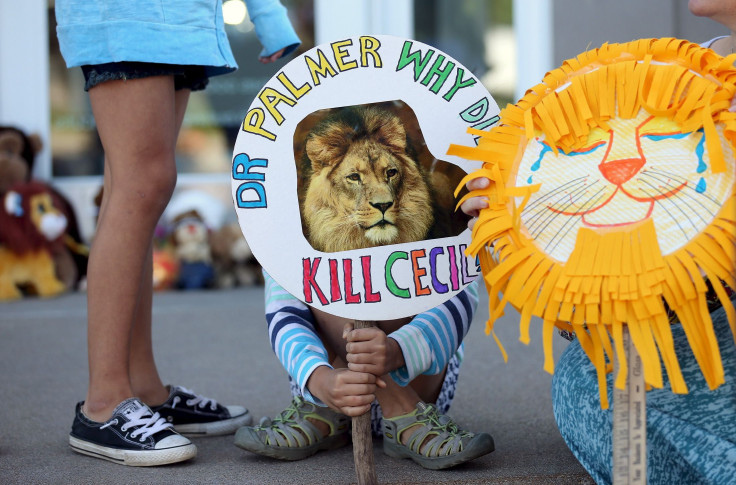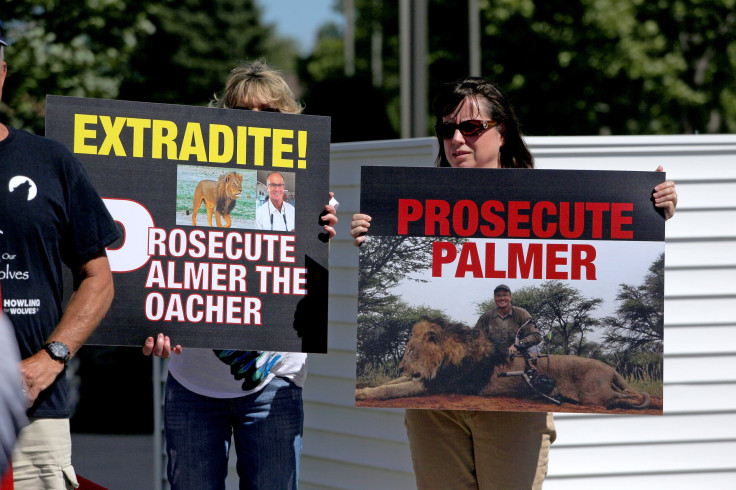Will Walter Palmer Be Extradited? Cecil The Lion's Killer Allegedly Broke Laws In Zimbabwe, US

The American dentist who hunted and killed Cecil the lion could be extradited to Zimbabwe and face criminal charges in both countries. The Zimbabwean government on Friday called on the U.S. to hand over Walter Palmer, who returned to his home country after the lion hunt, and legal experts said it could happen through the extradition treaty between the two nations.
The joint agreement between Zimbabwe and the United States, which took effect in 2000, applies to anyone charged with or convicted of “an extraditable offense,” which is defined as “one punishable under the laws of both Contracting States by deprivation of liberty for a period of more than one year or by a more severe penalty.” In other words, Palmer’s alleged actions in Zimbabwe also would have to be illegal in the United States in order for a lawful extradition to take place.
Jens David Ohlin, a Cornell University law professor who specializes in international and criminal law, told the Huffington Post the rule “seems pretty easily satisfiable” in this case because Palmer is accused of unlawful poaching of big game in Zimbabwe, which is also deemed criminal in the United States.
Eric Freyfogle, a University of Illinois at Urbana-Champaign law professor who is an expert on wildlife law, told the Huffington Post that Palmer’s alleged conduct is indeed a crime under U.S. law, which means other federal and state criminal laws could also apply to him. Palmer might have breached U.S. anti-bribery laws, animal cruelty laws and the Lacey Act, which “makes it a federal crime to ‘purchase in interstate or foreign commerce’ any wildlife taken in violation of any foreign law.”

The U.S. Fish and Wildlife Service said in a statement Wednesday that the agency "is deeply concerned about the recent killing of Cecil the lion. We are currently gathering facts about the issue and will assist Zimbabwe officials in whatever manner requested," the National Journal reported.
Still, while it’s plausible for Palmer to be extradited, the legal process is potentially lengthy and costly -- and Zimbabwe may not want to go through with it. Palmer, who has gone into hiding, could also return to the southern African country on his own accord and face trial.
The wealthy American dentist is no stranger to wildlife authorities. In 2006, Palmer was fined $3,000 and given a year of probation after he pleaded guilty to illegally hunting and killing a black bear outside a permitted zone in Wisconsin, NBC News reported.
Palmer admitted to killing Cecil, a beloved lion resident of Zimbabwe’s Hwange National Park, and expressed remorse Tuesday in a statement to the Minneapolis Star-Tribune. “I had no idea that the lion I took was a known, local favorite, was collared and part of a study until the end of the hunt,” he said. “I deeply regret that my pursuit of an activity I love and practice responsibly and legally resulted in the taking of this lion.”
Palmer along with fellow trophy hunter Theo Bronchorst of Bushman Safaris, and safari landowner Honest Ndlovu allegedly lured the 13-year-old male lion out of the national park and into a hunting area before killing the big cat. In Zimbabwe, permits and quotas are required for all hunting areas, and only animals on quota are to be hunted. Palmer and his hunting gang had neither, according to a joint statement from the Zimbabwe Parks and Wildlife Management Authority and the Safari Operations Association of Zimbabwe.
© Copyright IBTimes 2024. All rights reserved.





















